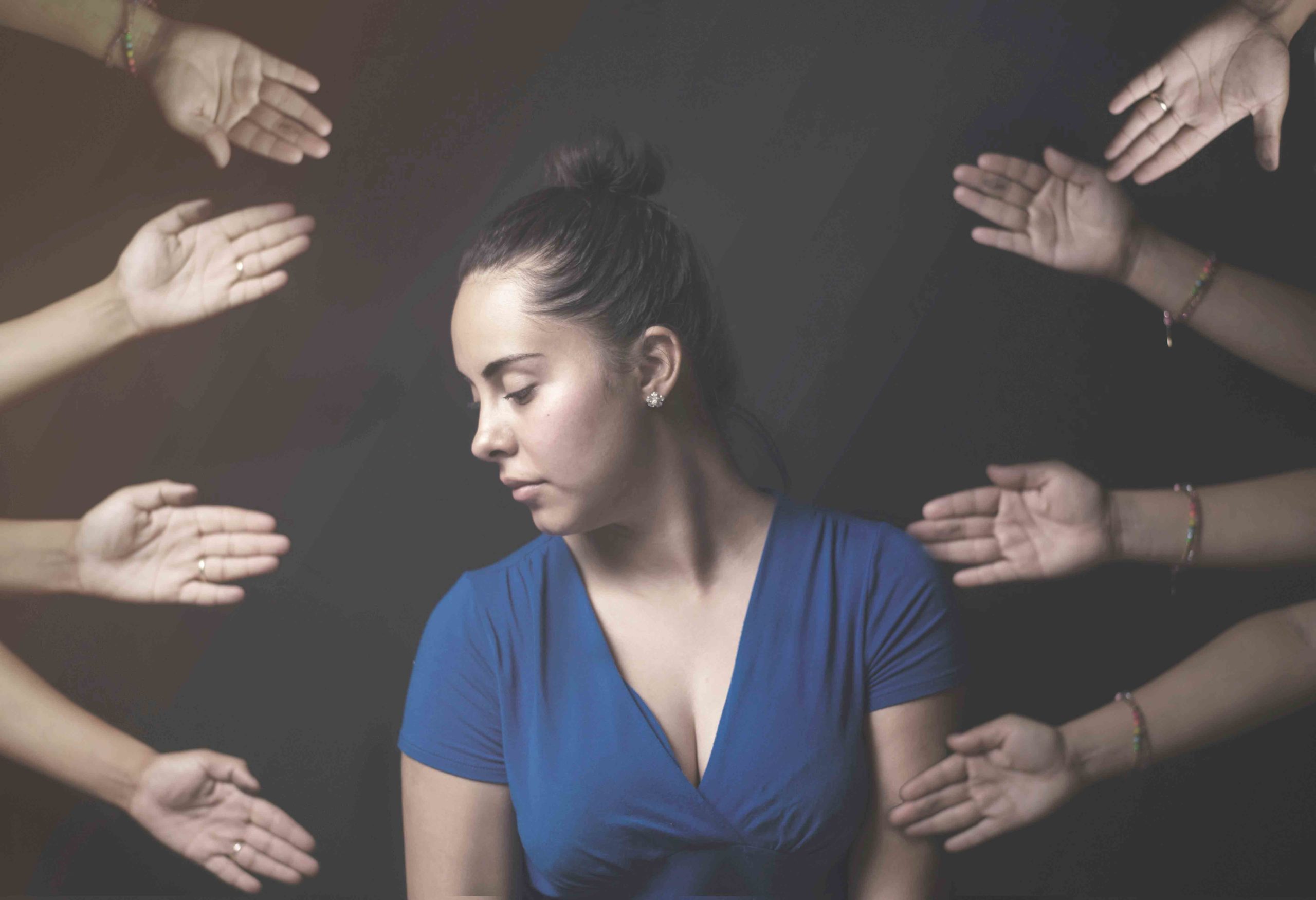An intervention is often a last-gasp attempt to convince a loved one struggling with addiction to get help. They’ve become more and more popular over the last 20 years and given rise to reality TV shows where families are filmed confronting a son or daughter in the grip of a drug or alcohol addiction.
The medical community is at odds as to whether they work or not and there’s little data to support both sides of the argument. An intervention may work to get an addict into an alcohol and drug recovery Program but all too often the attempt fails if the person doesn’t go in committed to his or her recovery.
The idea behind an intervention is to gently coerce the person in a non-threatening way to accept help but too often they feel bullied and hijacked, particularly if it’s a surprise intervention. It can often do more harm than good and further break down what are already strained relationships.
Done in the proper manner, an invention should be a carefully planned meeting with an intervention specialist in charge to manage fraught emotions and outbursts. It’s often set up as a surprise because telling the addict in advance might send the person running and he or she won’t show up.
Whether an intervention is the best way to go or not depends on a number of factors and there’s no way to tell in advance what will unfold and how effective it will be. It may be crushingly disappointing for the family and make matters worse or it could be the beginning of the end of the addiction cycle.
What is an intervention?
An intervention is when family and friends come together and make a non-threatening appeal for an addict to agree to attend an inpatient or outpatient alcohol and drug recovery Program. It’s a form of peer pressure but it comes from a place of love.
Each person in the group has a chance to say how the addict and the addiction makes them feel and how it’s harming their relationship. Most importantly, each person must list the consequences for not seeking treatment. This might be no longer financially supporting the person or kicking him or her out the home and cutting all ties until they commitment to recovery treatment.
Interventions can be very tense and a whole range of emotions can potentially be unleashed in a very negative way; from crying and shouting to accusations, resentment and laying blame. This is why you need a neutral professional person to manage an intervention. It shouldn’t be attempted without one.
The addict may or may not accept the help offered. If they do, you need to have a plan in place for where they can immediately go for help. You can’t get their buy-in and then wait a few weeks for a drug and alcohol recovery centre to take them.
If they resist the help offered and refuse to go to a recovery centre, what happens? You have to follow through with the consequences you gave. If you don’t, you lose control again and make the problem worse. Before an intervention, you as a family member or friend need to have got to the point where you are willing and able to follow through with your “threat”.
Why is professional help important for an intervention?
As you well know, an addict is manipulative and knows which buttons to push. Likewise, an enabling family member knows which buttons to press with the addict. A person with professional experience in handling interventions is the one in control and won’t allow either side to manipulate the conversation.
The professional mediator can also help the individual family members and friends follow through with the consequences given to the addict if he or she refuses to attend a recovery Program for their alcohol or drug addiction.
Why do interventions fail?
An intervention will not lead to a successful or happy ending if the addict is not willing to enter a treatment Program. If they go to an alcohol and drug rehabilitation centre only out of guilt or because they’ve been forced into it by the “threats” made; the chance of them relapsing once they get out is highly likely.
What the experts say is addicts are more likely to seek treatment when they undergo an intervention but interventions don’t affect the outcome of the treatment itself. If an addict is not fully committed to a life of sobriety, it’s very likely he or she will relapse.
Why is the whole family involved?
Another reason interventions aren’t successful is they’re often one-tracked and only focus on the addict. There’s a lot of finger pointing and the addict bears the brunt of the shaming. The professionals will tell you that in the majority of cases there is an enabler in the family group that’s fueling the addiction in one way or the another.
If they’re allowed to get away with it, they’ll be there and carry on when the person comes out of the alcohol and drug treatment Program. A professional intervention specialist will focus on the entire group and weed out the people who enable the addiction and ensure they too confront their own issues.
Why is dual diagnosis is so important
Dual diagnosis is so common that most alcohol and drug recovery centres expect to find it in a patient. It’s where a patient is diagnosed with a mental illness and a co-occurring addiction. This ranges from alcohol and drug addiction to an addiction to sex, gaming and stealing.
Studies show that at least 50% of people living with a mental illness have a substance abuse problem. Similarly, more than half of the people battling with alcohol and drug addiction have a common mental health disorder.
Substance abuse and a mental health disorder needs to be treated simultaneously. If the addict goes to a recovery treatment centre that doesn’t offer an integrated approach, the chances of him or her relapsing is high.
Dual diagnosis should ideally be made by a multi-disciplinary team at an alcohol and drug recovery centre and needs to be treated using an integrated dual disorder treatment Program.
White River Manor works closely with professionals with years of experience in dual diagnosis. Our multidisciplinary team includes a psychiatrists, cognitive behaviour specialist, counsellors, nursing sisters and a nutritionist. The aim is to ensure you or your loved one receive a tailor-made recovery Program that’s holistic and comprehensive.
Professional tips for an intervention
Come from a place of love; express your feelings without being confrontational.
An intervention is not supposed to put pressure on the addict to get sober and deepen any sense of shame and guilt they are already living with. You want the willingness to get better to come from within the addict and all you’re offering is a helping hand to get them into the right alcohol and drug treatment centre.
Addiction often co-occurs with one or more mental health disorder; including depression, anxiety, bipolar disorder or schizophrenia. Dual diagnosis should ideally be made by a multi-disciplinary team at an alcohol and drug recovery centre and needs to be treated using an integrated dual disorder treatment Program.
Be prepared for the worse. If the addict refuses help, you have to follow through with the consequences you listed. This could lead to a complete breakdown in the relationship and traumatic action such as a divorce, kicking them out your home or calling the police. Ask yourself if you’re ready for that before the intervention takes place.
Don’t isolate the addict in the intervention and only point fingers at him or her. Every member of the family and friend in the intervention group needs to look in the mirror at what might be enabling behaviour and hold themselves accountable.
Use a professional intervention specialist who is a neutral party. Don’t DIY because there’s a very high chance the intervention will fail.
Have an alcohol and drug recovery centre lined up that the addict can go to immediately as soon as they accept the help offered. Don’t let much time lapse between getting them to admit they need help and getting them the help they need for alcohol and drug addiction.
Avoid scheduling an intervention at a time when the addict is likely to be high, drunk and/or stressed. He or she will have trouble listening to what the group has to say if they’re distracted by problems at work, financial stress, a breakup or trouble with the law.
Try to be specific when you tell the addict how his or her behaviour is affecting you. Saying, “your addiction makes be unhappy” is vague. Saying, “you’ve put us into financial ruin and we’re going to lose the house” is more specific.
Keep it short and to the point. Don’t ramble and rant. It’s better to write down a number of point notes and refer to them so you don’t go off topic and overwhelm the person with a litany of accusations.
Do careful research to find the right alcohol and drug rehabilitation centre that offers a holistic and comprehensive Program. There are many, many unscrupulous operators running recovery centres who are more interested in the money from the medical aid then they are in the patient. Get referrals and visit the alcohol and drug treatment centre beforehand to check it out.
You have to be emotionally prepared for a fundamental change in your relationship once the intervention is over. Regardless of the outcome, an intervention affects your relationship with the addict one way or another.
Use a professional intervention specialist. He or she has years of experience in the field of alcohol and drug addiction, and in many cases is a recovering addict themselves and can identify with the addict and the tricks they have up their sleeves.
Need more information for an intervention?
White River Manor works closely with medical practitioners such as psychologists and psychiatrists who have years of experience in dealing with alcohol and drug addiction as well as a team of highly experienced counsellors who understand the intervention process and are strong counsellors.
Don’t try to do this on your own. You need expert advice and assistance or else you could make the problem a lot worse.




